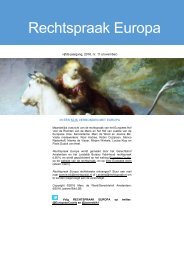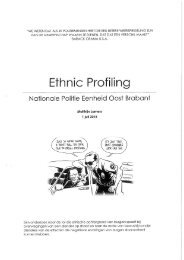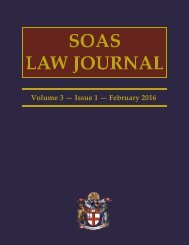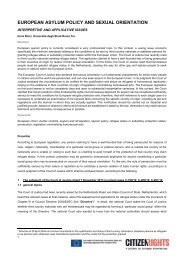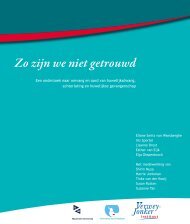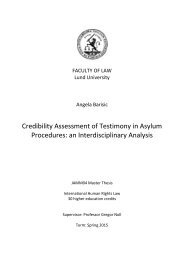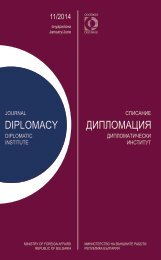AEMI
AEMI-2016-web
AEMI-2016-web
You also want an ePaper? Increase the reach of your titles
YUMPU automatically turns print PDFs into web optimized ePapers that Google loves.
46 <strong>AEMI</strong> JOURNAL 2015<br />
Genebra Revisitado»), 2011; The Exile of the Last<br />
Liberal («O Exílio do Último Liberal»), 2012; The<br />
Returnees Have Changed Portugal («Os Retornados<br />
Mudaram Portugal»), 2013.<br />
3 António Gonçalves Dias (1823-1864) was born<br />
in Caxias, Maranhão/Brazil, having studied law<br />
at the University of Coimbra. He so profoundly<br />
understood the Portuguese language that he prodigiously<br />
translated his feeling of being away from<br />
the country in the poem that immortalized him:<br />
Song of Exile (Canção do Exílio).<br />
4 The Prince Regent Dom João of Braganza (future<br />
King Dom João VI), received the news of the<br />
penetration of French troops in Portuguese territory<br />
(23 November) and immediately summoned<br />
the Council of State, having determined that the<br />
entire royal family and the Government were to<br />
embark to Brazil (27 November). The Portuguese<br />
Squad, which included 83 ships, 3 frigates, brigs<br />
and two schooners supported by four ships of the<br />
Royal Navy, left the port of Lisbon in November<br />
29, 1807, carrying about fifteen thousand people.<br />
General Junot entered Lisbon on the morning of<br />
30, leading an army of about 26,000 men which<br />
was preceded by a detachment of the Portuguese<br />
Cavalry, who surrendered and accepted to serve<br />
the French. This previously scheduled action<br />
avoided the defeat of the Portuguese monarchist<br />
Government.<br />
5 On October 4th, 1910, a revolution took place<br />
and the next day (October 5th) the proclamation<br />
of the Republic took place in Lisbon. The Necessidades<br />
Palace, the King’s official residence, was<br />
bombed, and the monarch was advised to go to<br />
the Mafra’s National Palace, where his mother, the<br />
Queen, and his grandmother, the Queen Mother<br />
Maria Pia of Savoy would join him. The next day,<br />
after the Republican victory, Manuel II goes to<br />
the Ericeira beach to embark on the Royal yacht<br />
Amelia and head to Oporto. The officers aboard<br />
prevented him and he was taken to Gibraltar instead.<br />
Upon arrival, he received news that Oporto<br />
had adhered to the Republic - the coup was over.<br />
The Royal family moved to the United Kingdom,<br />
where it was received by King George V.<br />
6 See for example, regarding to the hijacking of the<br />
ship Santa Maria, the news published in January<br />
24, 1961 by News Paper (Jornal de Notícias)<br />
(Porto) and Diary of Lisbon (Diário de Lisboa);<br />
also the ones that have been published about the<br />
diversion of the plane by the Daily Illustrated<br />
(Diário Ilustrado) and Diary of Lisbon (Diário de<br />
Lisboa) in November 10, 1961.<br />
7 The song of José (Zeca) Afonso, «Grândola, Vila<br />
Morena», recorded in 1971 in Paris region, gave<br />
the starting signal for the military uprising in April<br />
25, 1974, via the emissions made by Rádio Renascença<br />
(program Limite).<br />
8 The persistent diligence of State Congressman Joseph<br />
Perry Jr. and federal senators John O. Pastore<br />
(Rhode Island) and John F. Kennedy (Massachusetts,<br />
which shortly after was elected President of<br />
the United States) contributed to such a decision<br />
had been taken.<br />
9 The demographic breakdown, in the order of<br />
50%, contributed to the improvement of the life<br />
conditions of the resident population, since job<br />
opportunities increased and wages improved.<br />
10 António Guterres (1949-) former Prime Minister<br />
of Portugal (1995 a 2002), was elected in 2005<br />
by the United Nations General Assembly for a<br />
five-year term as High Commissioner. In his inauguration<br />
speech that he did for conviction and<br />
because he believes truly in this institution values,<br />
values that you want to make prevail throughout<br />
the world.<br />
11 The return to the country, designated by two concepts<br />
– «Regresso» and «Retorno» - that circulated<br />
in Portugal in the second half of the Decade of 70<br />
and in the first half of the 80, distinguishes the<br />
application of each of them. Although both designations<br />
expressed mobility, the former designated<br />
simply the return and the latter was used referring<br />
to a specific group forced to abandon the colonies.<br />
The recommendations of Point 1, concerning the<br />
concepts of Return issued by the first Portuguese<br />
Communities Council which took place at the<br />
Palácio da Foz, in Lisbon (April 1981), establishes<br />
the following: «After detailed consideration<br />
on the subject, it was decided unanimously to<br />
recommend that, in future, the terms “Regresso”<br />
and “Retorno” will be used with the following<br />
meanings (...): “Regresso”: whenever the journey<br />
to the country of origin is voluntary; “Retorno”:<br />
whenever the exit from the host country is compulsory».



